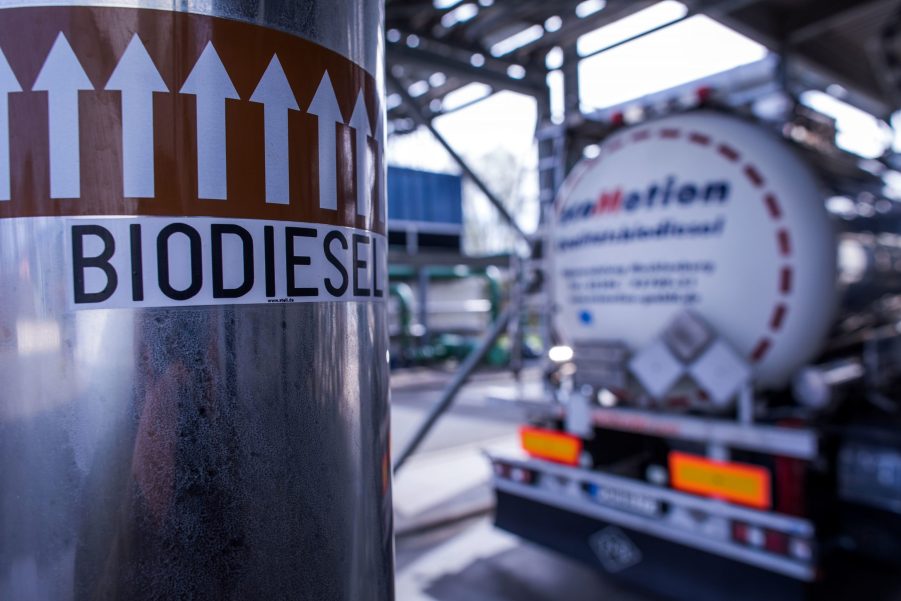
Diesel or Biodiesel: Which One Is Better?
Most people probably get the sort of fuel their vehicle recommends without giving it much thought. There are a variety of fuel options these days. So, is one better than another? Diesel and biodiesel can generally be used in many of the same vehicles, so is one better?

Various types of vehicle fuels
There are several different types of vehicle fuels, says AAA. Gasoline and diesel are still the two most common car fuels, gas being the most common. Gas combusts quickly, allowing cars to start and accelerate quickly, but it also is a leading cause of pollution. Diesel vehicles are more fuel-efficient and produce less carbon dioxide than gas vehicles but produce more nitrous oxide, which causes smog.
Propane (liquefied petroleum) is cleaner and less expensive. It’s often used to power hybrid vehicles in countries like the United Kingdom, but it isn’t used much in the United States. Ethanol is a biofuel developed from sugar cane, barley, corn, and other items that reduce emissions. It is frequently added to gasoline in the United States. It is also available in flex-fuel, a gasoline mixture with a higher percentage of ethanol.
Compressed natural gas can be either liquid or gas, and emissions from vehicles that use it are about 80% lower than those with gasoline. Biodiesel, made from animal fats, algae, vegetable oils, or cooking grease, produces about 74% lower emissions than petroleum diesel does. In the U.S., soybean oil is the primary source of biodiesel.
The differences between diesel and biodiesel
Diesel-vehicle owners may be interested in transitioning to biodiesel. Most diesel fuel in the United States already contains 5% or less of biodiesel, says Car and Driver. Generally, biodiesel isn’t used alone and is mixed with some percentage of diesel fuel. Diesel vehicles can use a low percentage of biodiesel, but higher percentages mean modifications are necessary. It costs about the same to produce biodiesel as it does to create diesel from petroleum.
The benefits of biodiesel are that it’s produced from renewable resources and can be produced in the United States rather than imported. Biodiesel is also non-toxic and biodegradable, which diesel fuel is not. There are national standards for biodiesels to ensure quality, and there aren’t adverse long-term effects on vehicles that use diesel. State and federal laws and federal tax incentives have helped drive the growth of biodiesel.
Concerns with biodiesel include that it has to be stored at the correct temperature to ensure it doesn’t grow mold if it’s too warm or gets thick if it’s too cold. Biodiesel can be more likely to cause fuel filter clogs. In addition, biodiesel doesn’t perform as well as diesel in cold weather.
The future of vehicles fuels
With the European Union, the United Kingdom, and Norway set to ban combustion engines in the coming years, some of today’s fuels may be on their way out, says Robb Report and Fortune. States like New York and California are also moving to ban combustion engines by 2035, says CNBC. Auto manufacturers, like General Motors, have plans to dump combustion engines and hybrids.
As vehicles evolve, there is a shift toward electric vehicles (EVs) and away from internal combustion engine vehicles. While EV sales are only about 3% now, according to AAA, that number is expected to jump within a decade.
While most diesel fuels already contain some biodiesel, the advantages of using biodiesel suggest that its uses will increase going forward. However, vehicles are more likely to power up using electricity than either diesel or biodiesel farther out.


